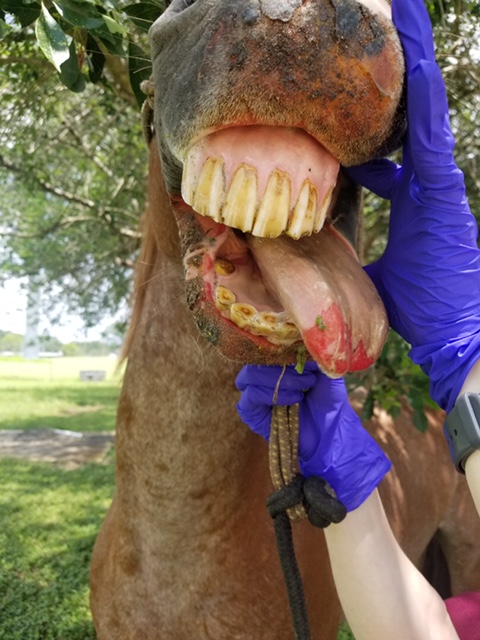
Vesicular stomatitis virus (VSV) is a reportable disease that affects not just horses, but also other species of livestock, particularly ruminants. It is carried by flies and midges and is also acquired through direct contact with open sores related to the illness or by nose-to-nose contact between horses.
Links in articles are part of an Amazon Affiliate program that provides income to support this brand. Links are chosen by our editors.
Additionally, the virus can be passed through fomites, such as water and feed buckets, tack, grooming equipment, horse trailers, or any object contacted physically by an infected horse.
Equine business owners can create an Amazon Business Account.
Vesicular stomatitis virus is not fatal, but does cause painful blisters, sores, and sloughing tissue on the muzzle and nose, in the mouth and on the tongue, the ears, around the coronary band of the hooves, around the udder or prepuce (sheath). Horses develop a fever, have excessive salivation, and often go off feed, particularly if mouth lesions are involved.
The virus runs its course over a few weeks and horses generally recover fully.
There is no vaccine against VSV, so preventive measures are all important—careful biosecurity, particularly when strange and new horses are involved; avoidance of shared feed and water vessels, grooming supplies and tack; disinfection of all tack and travel equipment; and quarantine of horses when returning from an event.
The incubation period is 2-8 days. Vesicular stomatitis virus is a reportable disease, and facilities identified with VSV-infected horses are quarantined for 14 days after the onset of lesions in the last case. Such quarantines not only disrupt training and competition schedules, but they also have an industry-wide effect on events as competitors are forced to drop out.
The best advice for prevention is to use strategic insect control measures, such as reduction of insect breeding sites, manure management and copious use of insecticides.
Vesicular stomatitis virus is transmissible to humans, so good hygiene precautions should be used when handling sick animals to avoid exposure, including the use of personal protective equipment such as gloves.
Sign up now for Amazon Prime 30-day Free Trials, a membership program that offers special benefits including: Instantly watch thousands of movies and TV episodes; Borrow Kindle books; Get unlimited FREE two-day shipping (no minimum order size). Learn more.


